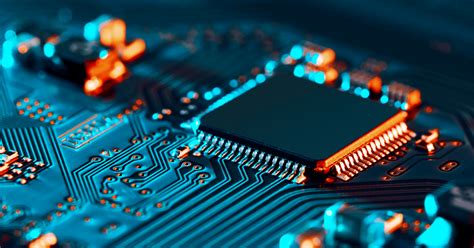Global PCB Market Overview
The global PCB market has experienced steady growth in recent years, driven by the increasing demand for electronic devices and the adoption of advanced technologies. According to recent market research reports, the global PCB market size is expected to reach USD 89.7 billion by 2025, growing at a CAGR of 4.3% during the forecast period (2020-2025).
| Region | Market Share (2020) | Projected CAGR (2020-2025) |
|---|---|---|
| Asia Pacific | 52% | 5.1% |
| North America | 25% | 3.5% |
| Europe | 18% | 3.2% |
| Rest of World | 5% | 4.0% |
Key Players in the PCB Industry
The PCB industry is highly competitive, with several key players dominating the market. Some of the leading PCB manufacturers include:
- Nippon Mektron
- Zhen Ding Technology
- Unimicron
- Young Poong Electronics
- Tripod Technology Corporation
These companies have established a strong presence in the market through their advanced manufacturing capabilities, extensive product portfolios, and global reach.
Emerging Trends in the PCB Industry
Miniaturization and High-Density Interconnect (HDI) PCBs
One of the most significant trends in the PCB industry is the growing demand for miniaturization and high-density interconnect (HDI) PCBs. As electronic devices become smaller and more compact, manufacturers are focusing on developing PCBs that can accommodate a higher number of components in a limited space. HDI PCBs offer several advantages, such as improved Signal Integrity, reduced power consumption, and enhanced thermal management.
Adoption of 5G Technology
The rollout of 5G networks worldwide is expected to drive the demand for PCBs in the coming years. 5G technology requires advanced PCBs that can support higher frequencies, faster data transmission rates, and increased bandwidth. PCB manufacturers are investing in research and development to create innovative solutions that cater to the specific requirements of 5G applications, such as antenna design, RF shielding, and low-loss materials.
Sustainable and Eco-Friendly PCBs
Environmental concerns have led to a growing emphasis on sustainable and eco-friendly PCBs. Manufacturers are increasingly adopting green manufacturing processes, such as using lead-free materials, reducing chemical usage, and implementing waste reduction strategies. Additionally, there is a rising demand for biodegradable and recyclable PCB materials, which can help minimize the environmental impact of electronic waste.

Challenges Faced by the PCB Industry
Supply Chain Disruptions
The PCB industry has been significantly impacted by supply chain disruptions caused by the COVID-19 pandemic. The closure of manufacturing facilities, logistical challenges, and raw material shortages have led to production delays and increased costs. As the global economy recovers, PCB manufacturers are focusing on strengthening their supply chains and diversifying their sourcing strategies to mitigate future risks.
Skilled Labor Shortage
The PCB industry faces a shortage of skilled labor, particularly in advanced manufacturing processes such as HDI and Multilayer PCBs. The complex nature of these technologies requires highly trained personnel, and the lack of qualified workers can hinder the industry’s growth. To address this challenge, PCB manufacturers are investing in training and development programs to upskill their existing workforce and attract new talent.
Intellectual Property Protection
Intellectual property (IP) protection is a critical concern for PCB manufacturers, particularly in the face of increasing competition and technological advancements. Companies need to ensure that their designs, processes, and innovations are adequately protected to maintain their competitive edge. This involves implementing robust IP management strategies, such as patents, trademarks, and non-disclosure agreements.

Opportunities in the PCB Industry
Automotive Electronics
The automotive industry is undergoing a significant transformation, with the increasing adoption of electric vehicles (EVs) and autonomous driving technologies. These developments have created new opportunities for PCB manufacturers, as automotive electronics require high-reliability, ruggedized PCBs that can withstand harsh environmental conditions. PCB manufacturers are developing specialized solutions for automotive applications, such as high-power PCBs for EV battery management systems and High-Speed PCBs for advanced driver assistance systems (ADAS).
Medical Electronics
The medical electronics sector is another promising area for PCB manufacturers. The growing demand for medical devices, such as wearables, implantables, and diagnostic equipment, has driven the need for advanced PCBs that meet stringent quality and reliability standards. PCB manufacturers are investing in clean room facilities and obtaining certifications such as ISO 13485 to cater to the specific requirements of the medical industry.
Industrial Internet of Things (IIoT)
The Industrial Internet of Things (IIoT) is transforming the manufacturing sector, enabling smart factories, predictive maintenance, and enhanced operational efficiency. PCBs play a crucial role in IIoT applications, providing the necessary connectivity and data processing capabilities. PCB manufacturers are developing solutions that can withstand harsh industrial environments, such as high temperatures, vibrations, and chemical exposure.

Frequently Asked Questions (FAQ)
-
What is the expected growth rate of the global PCB market during the forecast period (2020-2025)?
The global PCB market is expected to grow at a CAGR of 4.3% during the forecast period (2020-2025). -
Which region holds the largest market share in the PCB industry?
Asia Pacific holds the largest market share in the PCB industry, accounting for 52% of the global market in 2020. -
What are some of the key trends driving the demand for PCBs?
Miniaturization, high-density interconnect (HDI) PCBs, adoption of 5G technology, and sustainable and eco-friendly PCBs are some of the key trends driving the demand for PCBs. -
What are the main challenges faced by the PCB industry?
The main challenges faced by the PCB industry include supply chain disruptions, skilled labor shortage, and intellectual property protection. -
Which end-use industries offer significant growth opportunities for PCB manufacturers?
Automotive electronics, medical electronics, and the Industrial Internet of Things (IIoT) are some of the end-use industries offering significant growth opportunities for PCB manufacturers.
Conclusion
The PCB industry is poised for growth in the upcoming quarter, driven by the increasing demand for advanced electronic devices and the adoption of emerging technologies. While the industry faces challenges such as supply chain disruptions and skilled labor shortages, there are significant opportunities in sectors like automotive electronics, medical electronics, and the Industrial Internet of Things.
PCB manufacturers must focus on innovation, sustainability, and intellectual property protection to remain competitive in the market. By investing in research and development, adopting eco-friendly practices, and strengthening their supply chains, PCB manufacturers can position themselves for success in the dynamic and rapidly evolving electronics industry.
As the global economy recovers from the impact of the COVID-19 pandemic, the PCB industry is expected to witness steady growth, with Asia Pacific continuing to dominate the market. The increasing adoption of 5G technology, miniaturization trends, and the growing demand for high-density interconnect PCBs will further fuel the industry’s expansion.
In conclusion, the PCB industry outlook for Q1 2023 remains positive, with ample opportunities for growth and innovation. PCB manufacturers that can adapt to the changing market dynamics and meet the evolving needs of their customers will be well-positioned to succeed in this highly competitive industry.

No responses yet